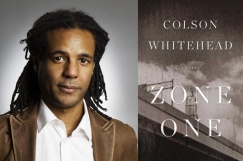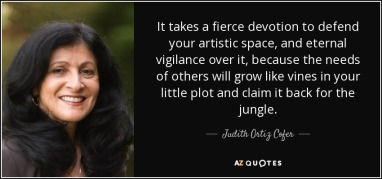Most of the time, when we read Horror, we are simply looking to be spooked – to be creeped out, to be disturbed. That superficial-ism is largely the damage done by the 1970’s Horror Boom, when we rediscovered how very fun it was to turn out the lights and scare ourselves. I was there, reading and keeping myself awake nights by suspiciously regarding shadows that seemed to move when they should not.
It never occurred to me to look beyond the pages of the books I was reading to the race of the author, or to wonder why minorities – if they appeared at all – appeared primarily as characters in cameos, as early-plot monster-fodder, as the sinister representatives of secret, exotic societies of monster worshippers – but hardly ever as writers.
It simply never occurred to me to wonder why…
Waking Up the Sleeping Princesses
It is like minority voices and/or those of people of color belong to some Lovecraftian interdimensional place in undefined space, beings who we cannot see, do not engage with, and cannot relate to except when they reach through that thin veil of our reality to hurt or insult us.
But it also like we have fallen asleep in our own fairy tale.
Hmm…. Perhaps WE are the problem?
No, of course that couldn’t be it; after all, the Publishing Industry has long been telling us why things are inevitably the way things are – because the voices of color “simply aren’t telling stories The Market will bear…”

“In terms of my own justifications, I find marketing interesting—that’s in Apex Hides the Hurt and John Henry Days. The marketing of culture—how we relate to it, how it finds us—is something that preoccupies me.” Colson Whitehead https://www.theatlantic.com/entertainment/archive/2011/10/colson-whitehead-on-zombies-zone-one-and-his-love-of-the-vcr/246855/
Oddly, when minority writers turn up writing Horror stories, they are inevitably consigned to the general fiction section, pitted against the whole of Literary Writing as though it has already been decided that minority writers don’t write Horror; therefore minority writers must be Literary instead. So minority-written Horror becomes all about “slumming it” in the genres.
Way to insult the both of us – genre writers and Literary writers. Are we supposed to be jealous or critical of these “outsiders” come to create in our genre? And why is anyone making it matter?
Rest assured, ‘Publishing has its reasons,’ we are informed; most of them dollar-informed reasons.
And indeed, in Publishing there are many arguments made and offered up for why minority writers are not as prominent. For example, we are often told not as many of them are writing. But isn’t that in defiance of where so many of our stories came from?
What are the odds, I wonder… that so many minorities do not produce published writers because the seed of storytelling is not in their genes…
Talk about your fairy tales.
And to brand all minority writers as Literary because they can’t help but write about minority experience which includes any number of fine Literary Theories, is – well – awfully racist sounding.
Are we revising minority voices out of our fiction?
Every culture in the world has stories. Every culture in the world has had them ripped off in some manner or other by modern-day published writers… From The One Thousand and One Nights, to the Aboriginal Dreamtime to Grimm’s Fairy Tales, we have been ripping off campfire stories since Homo Erectus rubbed sticks together.
No, I cannot believe that there are not people of color telling stories meant to be heard, inspired as every writer is by older, traditional tales. Right now, as they always have been.
We are also told that minority writers tend to tell stories that are not-inclusive of the bulk of The Market… But isn’t that in itself the purpose of good writing – to write to and for an audience that is known? To educate the rest?
I mean it seems racist yet again to assume that I as The Market’s pristine representative want to be catered to, and see no merit in “Other” or “Ethnic” writing.
Aren’t writers supposed to speak to an audience they know firsthand and cherish? To provide them with a warm blanket of prose and poetry with which to endure and navigate the world? Pardon you for speaking for me… someone smart enough to recognize that the work in question was not written specifically for me, and here I am the Other, open to giving a story its own space to inhabit…
Furthermore, are Publishers really going to suggest that there aren’t enough minorities to support (at the very least) a healthy niche Market of publishing if They are not as The Market seeks to define Them?
And why is anything in today’s business environment a failure if it at least breaks even or makes a modest profit? And what about all of those sermons to writers about the quality of the work for the good of humanity if Publishers won’t stand behind it, loss accepted?
Then we are told that (just like with our own rejected writing) only the Best find publication – as though we should overlook but subordinate the implication that minority writers tend (like all of us currently rejected) to not be good writers.
But how many really good writers do you commonly encounter who cannot or will not fit the whimsical parameters of a fickle, one-trick-pony Market? Does artistic choice make a writer truly “bad” or “unmarketable”? Or just make The Market and its machinery lazy and unimaginative?
No More Excuses: Now We’re Talking Kids, Futures, and Dreams
We are too often told that their children do not read, and so they do not read as teens and then as adults… therefore, there is no real Market for any of their fiction which may surface, or it is too negligible to finance.
Now this really ticks me off.
And which summons the paradox: do minority children read less, or read less when they discover they are not being invited to participate as readers? And then would they read more if we gave them more relevant stories to read? Would that in turn lead to more adult readers? And fan the already hot teen market?
Clarifies Jonathan Gottschall in his book, The Storytelling Animal: How Stories Make Us Human, “Children the world over delight in stories and start shaping their own pretend worlds as toddlers. Story is so central to the lives of young children that it comes close to defining their existence. What do little kids do? They do story.” (7) And eventually, they do us. So why are we processing writing through a filter of white culture that ignores all others?
And exactly why the heck do we always expect minority children to identify with white characters, and believe it either doesn’t happen or shouldn’t happen the other way around?

Debbie Weldon/AP http://www.phillyvoice.com/boy-trying-trick-teacher-haircut-goes-viral
“In this Feb. 28, 2017, photo, 5-year-olds Jax, left, and Reddy smile after Jax got a haircut similar to his friend’s at the Great Clips in Louisville, Ky. The story about the two boys and their racial harmony went viral online after Jax told his mother that he wanted to get his haircut like Reddy so that their teacher wouldn’t be able to tell them apart. “
Ah, don’t tell me children don’t get the real story…
But the rumors don’t stop there. They go on to sprout the theory that even if more minorities did write stories, the Market wouldn’t be able to interpret them – laced as they would be with cultural jargon and slang, and life-situations that The Rest of Us simply could not relate to… like Straight Outta Compton, the message would be lost on The Market, with no chance of Recognition or award; that the characters would not be identified with.
But at what point does something become a self-fulfilling prophecy? Wouldn’t it be truly amazing if we could learn something about each other through our art?
And that quickly, we are right back where we started…campfire myths.
Only this time, the Neanderthals are us.
Wake up, Sleeping Beauty.
The Publishing Industry is first an industry: it aims to protect itself by serving a market it perceives to want certain things.
It self-censors…
Maybe it even believes its own manufactured trends…
But it endlessly quotes what it refers to as “Market Demand” or “Public Interest.” Now, part of this is fairly and rightly rooted in a publisher’s need to make money, because making money allows for the payment of authors, artists, printers, editors, warehouse folk, transportation folk, bookstore folk, library folk, etc. But it is also rooted in a very dated idea of just who “The Public” and “The Market” really is….
For example, we hear how “people don’t read print books anymore” and that “people want certain types of books with certain types of heroes – read: stories about white heroes in white cultural situations…
My life has been so full of white people, I never noticed…Worse, I never noticed that people of color had little choice but to read the same…I’d like to think I was too busy reading, but the unavoidable truth is that somewhere in my own egocentrism, I chose to not-see.
And it is past time we started to realize that there is a whole universe of beings out there that we have been relegating to the fringes of our publishing dimension.
And some of them just might be…gods… Perhaps, crusty, cranky ones like Lovecraft’s versions…but perhaps ones whose voices we need to make us tremble in awe…
I look with the eyes of a white child raised in the 1960’s and 1970’s, whose father fought in Vietnam, and who accidentally encountered a Vietnamese-American writer like Violet Kupersmith, only because someone left her book at the desk to be re-shelved… It was Horror – told the old-fashioned way, cloaked in traditional myth and storytelling.

Her bio: “Her mother’s family fled the country by boat following the communist takeover of Saigon in 1975. Her parents met in Houston, Texas, where her father was a librarian and her mother was living in a convent… Violet attended Mount Holyoke College, where she injured herself many times playing rugby and began writing the ghost stories that would eventually become The Frangipani Hotel.”) http://www.violetkupersmith.com/violet/
I wonder what I am supposed to not-get as a representative of The Market. What was I supposed to resent? Why wasn’t she in my genre? We need voices like hers.
I get it.
I got it.
I loved it.
Like it or not, our world is changing. We are homogenizing, we are beginning to see enough value in each other that color is beginning to fill our families with rich, new cultural diversity. You can rejoice, or move to another planet.
The question becomes:
Are “people” not reading anymore because less people are exclusively living the white experience? Do today’s potential readers want to see themselves in books that are NOT being published?
One has to wonder. Even I wonder… And working in a bookstore, I can testify that yes, it appears that Publishers are right, and our customer base is largely white…
But then who wants to come into a 50,000 square foot bookstore and be directed to one tiny little section devoted to history, or sociology/cultural affairs, or psychicly deduce which writers of the rows of stacks are of a given color, and which of those were “allowed” to depict true characters and real experiences?
Listening to the Flutes and the Chanting
What is blatantly clear to me, nested all comfortable in my Horror genre, is that writers of color – especially in Horror – are excruciatingly hard to find.
From educational disparities, to vacuums of encouragement and mentoring, to “pressure” from the Ivory Tower (pun intended) to congratulate the self on “rising above and never looking back to save the drowning people who will surely overturn the boat,” people of color face unique challenges – additional challenges to being published that those of us in preferred shades of color do not.
And we don’t want to admit it because doing so makes us feel like that much more of a failure for having the advantage and still not getting the job done…
This is a tool our own race uses against us constantly to exploit our own sense of inadequacy, and to keep our heads turned, our noses to the altar stone. We are teased by an implied if not implicit wink and a nod… even as we are rejected. Always it is the fault of …The Market, the one god in this dimension whose whims select but a few for Eternal Fame.

Daniel José Older photographed by Ashley Ford.
https://www.kirkusreviews.com/features/daniel-jose-older/
Says Daniel Jose Older in a wonderful essay on the matter titled, “Diversity is Not Enough: Race, Power, Publishing”:
“The publishing industry looks a lot like one of those bestselling teenage dystopias: white, and full of people destroying one another to survive.” (238-239)
It’s true: look at how the acolytes of The Market, the would-be priests to the beast, rip apart and publicly dissect even the successes in our industry. Look at the sour grapes and the bitter envy.
Meanwhile, locked outside are writers and readers of color – a whole ‘nother Market…
I don’t tend to think that this is insidiously planned, although I could be wrong. I think we have become insidiously institutionalized to believe that this is the Way Things Are and that Nothing Has Changed. We have been asleep at the wheel , waiting for the kiss of the prince– even if not especially – at the wheel of the Horror Van.
Horror has long been a Literary tool for expressing dissent with the norm, with exposing the horrors of real life by the manufacture and exploitation of monsters. It has been the venue for feminism and civil rights, for truth-telling and condemnation of unacceptable social behaviors. So why have the most powerful voices of those issues been largely silenced or minimalized to the point of pulps and limited interest publications? Why do we label authors and not works? Why do we not trust readers to find the works designed to speak to them?
I can’t help but think this is a self-perpetuated problem inherent to the Publishing industry.
Older continues, “The publishing industry, people often say as if it’s a gigantic revelation, needs to make money and as such, it responds to The Market, and people don’t buy books about characters of color. This is updated marketing code for ‘you people don’t read,’ and its used to justify any number of inexcusable problems in literature…” up to and including commentary such as “The Market, I am told, just doesn’t demand this kind of book…because white kids won’t buy a book with a black kid on the cover – or so The Market says, despite millions of music albums that are sold in just that way…” (237)
Older further states that when agents and editors are typically asked what they might do to mend the lack of diversity in publishing, the conversation degrades into a blame-the-victim mentality, deftly managed with comments such as, “the change is going to have to come from within those who are affected” which as Older clarifies, “is the language of privilege – the audacity of standing at the top of the mountain you made on the backs of others and then yelling at people for being on the bottom.” (237-238)
Where publishing argues that people of color do not read, perhaps the substantiating argument is backward. Perhaps people of color would read if there was something out there that they could relate to.
More importantly, why isn’t it important to publishing to inspire people of color to read, to improve reading scores because reading stories that matter to them naturally leads to reading more, more often and better.
We must admit, there is nothing – and I mean nothing – more frightening to white privilege than an articulate, well-read person of color who can aim their vocabulary with laser precision at issues of social concern. But it seems sad to think that this is why “of 3,200 children’s books published in2013, just 93 were about black people according to a study by the Cooperative Children’s Books Center at the University of Wisconsin.” (236)
And yet if the question is occurring to me, I have to wonder what people of color are thinking…
So how do we fix this…really fix this?

http://www.azquotes.com/author/44523-Judith_Ortiz_Cofer
Dimensions Are Right Next Door
Unfortunately, the editors and agents may be mostly right. Change will have to start with writers of color, and the motivations of their intended audience. But they are wrong to think it stops there.
It stops with US. It stops when we don’t see the potential rising right in front of us and give it a chance.
In an essay by Laura Tohe titled “The Stories From Which I Come,” we see how what we start in the classroom is framed by Publishing choices. Tohe states:
“In the early 1960’s I didn’t read indigenous writers; I didn’t know any existed. Every day at reading time, out came the further monotony of Dick, Jane, Sally, and Spot…Hearing and reading stories in English regularly, I thought only non-Indians were writers or could be, even though when I was twelve, I secretly longed to be a writer. What stories could I tell? Who would be interested in my stories? How does one become a writer? Instead I told my parents I wanted to be a pediatrician when I grew up.
I didn’t realize until much later that my writing life really began with my mother’s stories and the stories my relatives told as I was growing up. Not until I graduated from university with a degree in psychology did I stop writing ‘in secret.’“ (176)
Imagine how she might have soared being seen and nurtured as a young writer. And how many others just like her are in classrooms right now, or lost to other “professions” by hopeless default because their writing doesn’t “fit” a myopic, colorblind Market?

http://www.sonorannews.com/archives/2015/151104/comm-laura-tohe.html
I love Horror. I don’t care who writes it, as long as it scares me. I love it when I learn something in addition. I cannot imagine that I am alone, and if even a percentage of The Market as currently defined agrees with me, then why aren’t we all worth courting?
Perhaps publishers are thinking that now is just not the time to take that kind of a chance… But I can’t help thinking maybe it is precisely the time. Here we are in the bonanza of all marginalist times since the 1800’s, with antagonism and horror being done to so many people of color and differing religions and cultures… when coincidentally and suddenly The Market isn’t buying much of anything at all…
Why not give the new majority something to read, to talk about, to inspire and educate the rest of us? And why not market to this Market?
So where are our writers of color? Right beside us… Where they have always been – pushed into an alternate dimension by our own desperate jostling for recognition. The question is more accurately not about where they are, but why isn’t their own voice, their own way of storytelling valued for what it can teach the rest of us?
Pucker up. I don’t know about you, but I feel horrified. And maybe even a little cheated.
References
Gottschall, Jonathan. The Storytelling Animal: How Stories Make Us Human. Boston: Mariner Books, c2012.
Older, Daniel Jose. “Diversity is Not Enough: Race, Power, Publishing.” Manjula Martin, ed. Scratch: Writers, Money, and the Art of Making a Living. New York: Simon & Schuster Paperbacks, c2017.
Tohe, Laura. “The Stories From Which I Come.” Janet Burroway, Ed. A Story Larger Than My Own: Women Writers Look Back on Their Lives and Careers. Chicago: University of Chicago Press, c2014.

I am actually printing this out KC, and will think about it. I have a small press/collective for Native writers since 2011. I saw the huge hole in the publishing world. Years prior I took a course on publishing. Writers don’t want to be marketers, usually. CreateSpace has slew of writers (of any ancestry) who will compete with 75 million other books. (I am doing my best to decolonize publishing)
LikeLiked by 2 people
I knew you were “kin under the skin”! Perhaps others will join you in your quest…I have had much the same idea floating in MY head for some time now!
LikeLiked by 1 person
YES!!! I studied collectives and how they can work for groups of writers. Non-profit, of course. Plenty of work for me!
LikeLiked by 2 people
Once again, you have written an excellent and deeply important post! Thank you.
LikeLiked by 3 people
Well, Professor, it is my quest to keep surprising you….glad when I succeed! Thank you for continuing to read while you are so busy being your whole Marketing Department: you continue to be a one-man, publishing inspiration…
LikeLiked by 1 person
A writer’s skin color– or sex–has no bearing on the readability of their work. Example: science fiction author Octavia Butler. She was a great talent.
LikeLiked by 2 people
I could not agree more! A writer’s words speak for themselves… I sometimes wonder what would happen if all books were issued in plain brown wrappers with no author names….
LikeLiked by 1 person